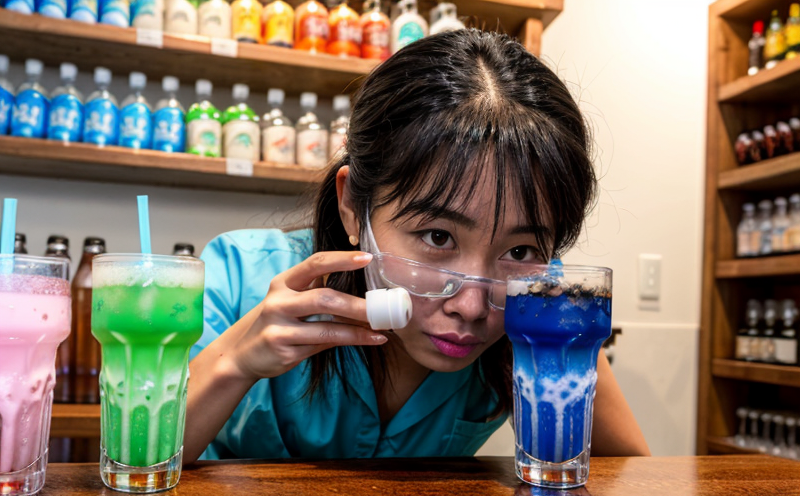FDA BAM Chapter 5 Salmonella Detection in Juices and Drinks
The Food and Drug Administration (FDA) defines a juice as any product that is “made from fruit by processing, whether or not it contains added ingredients.” Beverages made from fruit can be categorized into several types including fresh juices, blended drinks, and reconstituted products. Salmonella detection in these beverages is critical to ensure public health and prevent widespread foodborne illness outbreaks.
FDA's Bacteriological Analytical Manual (BAM) Chapter 5 provides a standardized method for detecting Salmonella in juice products. This protocol, which aligns with international standards such as ISO/TS 21730:2019 and ASTM E1867-21a, is widely used across the industry to ensure product safety and compliance.
The testing process involves several critical steps:
- Sampling of the juice or beverage
- Suitable enrichment with growth media to enhance detection rates
- Isolation on selective agar plates where Salmonella colonies will appear under specific conditions
- Confirmation using biochemical tests and possibly serological methods.
This method is designed to provide accurate results, but it requires precise sample handling and interpretation. The FDA's BAM Chapter 5 serves as a guideline for laboratories performing this test, ensuring consistency in methodology across various facilities.
Salmonella contamination can lead to severe health issues such as diarrhea, fever, cramps, nausea, headache, and vomiting. Infants, the elderly, pregnant women, and those with compromised immune systems are particularly vulnerable to these pathogens. Therefore, the rigorous testing protocols outlined in FDA BAM Chapter 5 play a crucial role in safeguarding consumer health.
Salmonella detection is not limited to juices; it extends to other non-alcoholic beverages as well, such as fruit nectars, smoothies, and vegetable-based drinks. Ensuring these products are free from harmful pathogens like Salmonella is essential for maintaining public trust and regulatory compliance.
Why It Matters
Beverage manufacturers have a significant responsibility to ensure their products do not pose any health risks to consumers. FDA BAM Chapter 5 provides the necessary framework for detecting Salmonella, one of the most common foodborne pathogens. By adhering to these protocols, manufacturers can demonstrate their commitment to product safety and compliance with regulatory requirements.
Salmonella outbreaks are costly events that can lead to product recalls, damaged reputations, and potential legal action. The FDA is vigilant in monitoring for such incidents and has strict guidelines on how companies must handle contaminated products. By proactively implementing robust testing procedures like those outlined in FDA BAM Chapter 5, beverage manufacturers can avoid these pitfalls and maintain their competitive edge.
Consumer trust is paramount in the beverage industry. Consumers expect that every product they purchase will be safe to consume without any health risks. The rigorous testing protocols provided by FDA BAM Chapter 5 help instill this confidence, ensuring consumers know that the beverages they buy are free from harmful pathogens like Salmonella.
Eurolab Advantages
At Eurolab, our expertise in biological and microbiological testing is unparalleled. We offer a comprehensive range of services tailored to meet your specific needs for FDA BAM Chapter 5 compliance. Our state-of-the-art laboratories are equipped with the latest technology and equipment to ensure accurate and reliable results.
- Experienced Professionals: Our team consists of highly skilled microbiologists and food scientists who possess extensive experience in performing Salmonella detection tests according to FDA BAM Chapter 5 guidelines.
- ISO/IEC 17025:2017 Accreditation: Eurolab is ISO/IEC 17025:2017 accredited, ensuring that our testing methods and facilities meet the highest standards of quality and reliability.
- Comprehensive Reporting: We provide detailed reports that include all necessary information for regulatory compliance, helping you stay ahead of any potential issues.
- Fast Turnaround Times: Our efficient processes allow us to deliver results quickly without compromising on accuracy, enabling timely decisions and actions.
- Customized Solutions: Whether it's routine testing or one-off projects, we can customize our services to fit your specific requirements.
By partnering with Eurolab, you can be assured that your beverage products are undergoing thorough and reliable Salmonella detection tests. This not only helps in maintaining compliance but also enhances the safety and reputation of your brand.
Environmental and Sustainability Contributions
- Reduced Contamination Risks: By ensuring that beverages are free from Salmonella, we contribute to reducing the risk of foodborne illnesses. This leads to healthier communities and reduces healthcare costs associated with such outbreaks.
- Elevated Consumer Trust: When consumers trust the safety of their beverage products, it fosters a positive environmental impact by encouraging sustainable purchasing behaviors. Brands that prioritize product safety are more likely to be chosen over competitors, promoting responsible consumption patterns.
- Minimized Waste and Recalls: Preventing Salmonella contamination through rigorous testing helps avoid costly recalls and the associated waste. This contributes positively towards reducing environmental impact and resource depletion.
Incorporating FDA BAM Chapter 5 Salmonella detection into your quality control processes is not just about compliance; it's a proactive step toward ensuring product safety, protecting public health, and supporting sustainable practices within the beverage industry.





